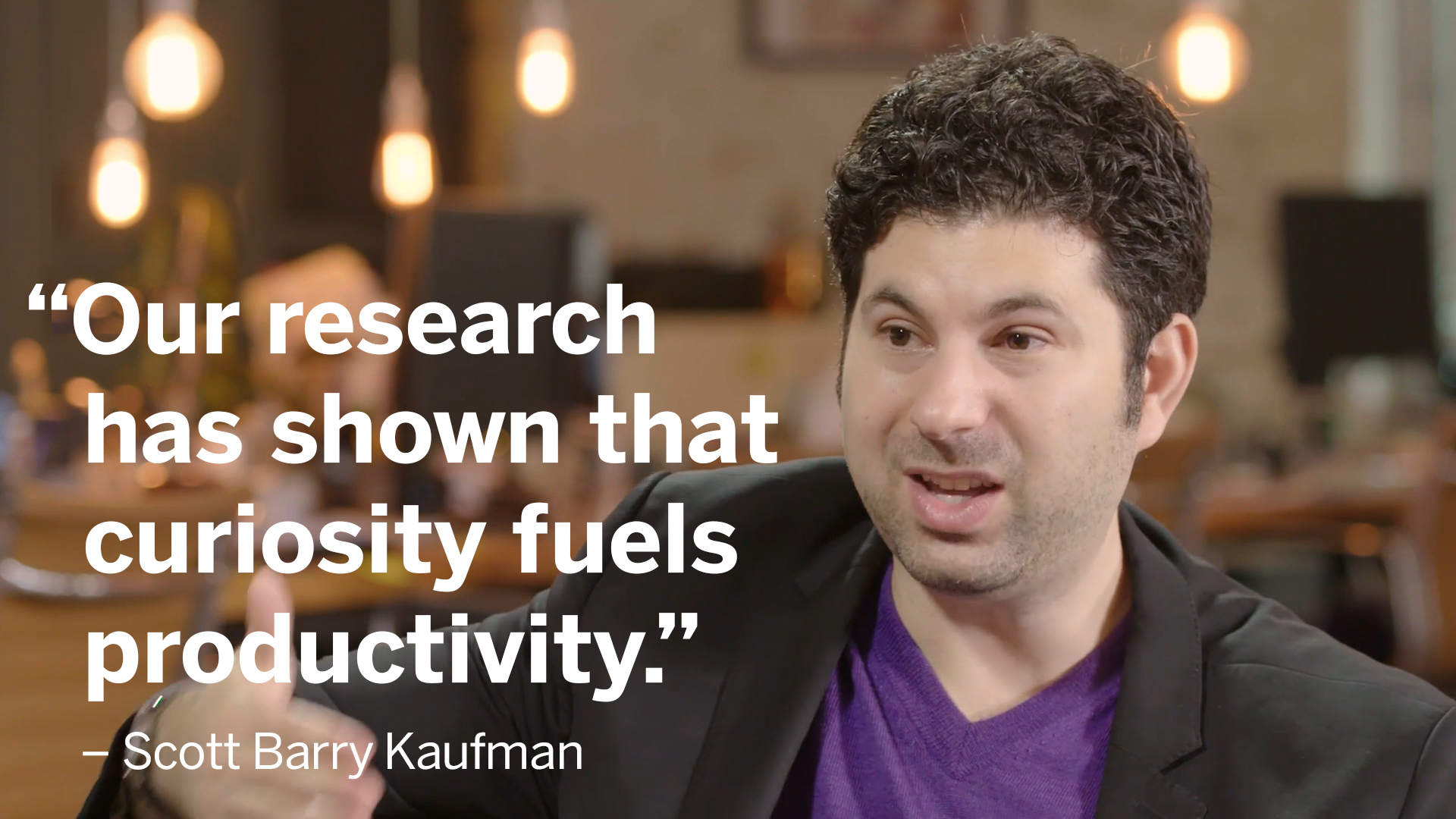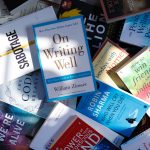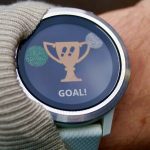Michelle Segar, PhD, MPH, and Director of the Sport, Health, and Activity Research and Policy (SHARP) Center at the University of Michigan, is the author of the bestseller No Sweat! How the Simple Science of Motivation Can Bring You a Lifetime of Fitness. Her book uses lessons from motivation science to help readers learn to truly enjoy exercise and create sustainable habits. Michelle recently joined Darya Rose—neuroscientist, author, and creator of the blog Summer Tomato—for a Heleo Conversation about making self-care joyful instead of a chore.
Darya: I was so impressed with your book because I feel like there’s hardly anybody talking about psychology and health. Everybody’s talking about carbs and high-intensity interval training, and completely ignoring the fact that in every single study the biggest problem is people don’t do the things.
Michelle: Right.
Darya: How did you get into this particular field?
Michelle: I was interested in how physical activity could be a vehicle of empowerment for people. While getting my Master’s degree in Kinesiology, I was fortunate to work with someone, Victor Catch, who let me pursue my own path. We got a grant to conduct a study with cancer survivors. This was back in the early ’90s. We were among the first to study how physical activity impacted cancer survivors. Our participants were about five years out of treatment, living normal lives. We randomized a group to get exercise for about 10 or 11 weeks, and a group that didn’t get exercise. We were looking to see if physical activity could improve depression and anxiety symptoms in the participants.
Lo and behold, our findings showed that it did. Then we decided to include a follow-up of focus groups to call back, give them the questionnaires again, and talk about physical activity in their lives.
We discovered that almost everyone had stopped exercising when our study had ended three months before. I was very curious, “Why would you stop? I saw you smiling when you were talking about exercising,” and they said, “Why did I stop? I have a job. I have aging parents. I have this and that to do.” It became very clear that these people had not stopped exercising because they were cancer survivors, but because they were simply busy adults doing the things that we all do. I thought, “If people who face a life-threatening illness don’t feel comfortable prioritizing their own self care through things like physical activity, then we have a real problem, and I want to help solve it.”
I went and got a second Master’s degree in Behavioral Health Education so I could learn how to develop programs and interventions, and evaluate them. I developed a program I delivered in the community for a couple of years. Then, I went back to school to get a PhD in Psychology, focused on motivation. Every part of this path has been to answer that question.
Darya: You cut right to what is really the core issue here—not prioritizing self-care.
Michelle: That’s right.
Trending: 5 Reasons Life Gets Better After Your 40s
Darya: We have all these reasons: I’m busy, I have kids, I have a job. You cut through the smokescreen of that, and what you’re actually saying is those things are more important than you.
“We unconsciously learn to prioritize everyone and everything else consistently above our own self-care.”
Michelle: Yes, and the word smokescreen is important because it’s not purposeful. People aren’t intentionally lying to themselves about this. The population has been socialized about how to think about that behavior, how to approach it, what’s the right way to do it, how long to do it for. We unconsciously learn to prioritize everyone and everything else consistently above our own self-care.
Darya: Is there a core limiting belief that underlies that? Is it that people believe it’s selfish or is it that people see it as a chore?
Michelle: As a society, we have been taught that self-care is optional rather than essential. That’s a big underlying belief, and so we’ve learned that everything else is more important. A lot of people say, “I think it’s selfish. I feel guilty when I do it.” That is often language women use. Among men, I hear them saying, “I don’t give myself permission to prioritize my own self-care. Work is constantly on my mind.”
While women might be worried about self-care being selfish, men are worried about performing their responsibilities. Interestingly, while we can’t generalize, nothing’s true for everyone, there might be some gender-embedded barriers to self-care.
Another reason people don’t prioritize physical activity as self-care is a lot of people don’t feel good from exercise. We’ve been socialized to exercise in ways that are hard and intense and make our heart rate go up—research shows, in general, when we exercise in ways that make our body feel like that, people’s displeasure increases. We tend to avoid things that make us feel worse. So part of the reason why people don’t prioritize [exercise] is simply because their definition of it makes them not want to do it.
Darya: I’m going to back up a little bit to what you were saying about how some people, particularly women, can think self-care is selfish. Men think it takes away from work. You make the case in No Sweat that if you really want to be good at work, be there for your family, have the energy, the mental clarity, the good health, that self-care is the basic requirement for those things. When I say that out loud to almost anyone, they’re like, “Yeah, of course.” Logically, that makes perfect sense, but getting that into your head as a belief is harder than just understanding it intellectually.
“Once you convert exercise from a chore into a gift, the real bridge is whether it’s considered optional or essential.”
Michelle: Yes, this speaks to literally how socialization works, and why it’s so hard to change. Converting exercise from a chore into a gift is easy because all you need to do is change people’s reasons from “shoulds” to reasons that physical activity can feel good, be a way to connect with people, and can help lift their moods. That’s the easy conversion.
Once you convert exercise from a chore into a gift, the real bridge is whether it’s considered optional or essential. You need to convert it from simply something you want to do to something that is essential to who you are, and fuels you to be better at and be more enthusiastic for the things you care most about—converting it from a want to a need.
It’s easy for people to say, “I know taking care of myself would be better.” As a society, it’s starting to change because of the conversations that Arianna Huffington is leading about sleep. Once we have more data, I do think the data are going to show that when people truly take better care of themselves, they perform better. Businesses do better. Once we have a certain amount of data, there will be a tipping point where the dialogue everywhere will change, and people will be able to take better care of ourselves.
Part of the reason why it’s hard for them to go from, “I know taking care of myself is important,” to believing it’s essential and doing it consistently goes back to the fact that we’ve been prescribed how to eat.
Are we at five or nine fruits and vegetables a day? At 30 or 45 minutes a day of physical activity? Eight hours of sleep? We’ve had prescriptions for gold standards, and unfortunately we then view these things as being inflexible. We either hit or miss. There’s success or failure.
Instead of thinking about these things in perfectionistic ways, we can start to think about them as being on a continuum and a menu. Like, “When I travel, maybe I get an extra hour of sleep because I don’t have the same child-rearing duties as I do at home,” or, “On this given day I can’t do that, but I can do it the next day.” The flexibility frees up judgment and opens up the positivity that helps fuel creative strategies to make it happen.
Darya: I love that. It’s flexibility in terms of what counts, whether it’s taking an extra stop and walking off the train instead of riding the whole way, or taking the stairs with your groceries, and also the amount of time that is required for exercise to count.
Trending: 5 Simple Strategies for Persuading Anybody
Michelle: Yes.
Darya: One of the barriers is that exercise has to be really hard, and that’s even worse if you’re already out of shape. I’ve had people starting from scratch tell me they feel like they need to run three miles four days a week. They’re like, “[Anything less] doesn’t count. I need to run four days a week.” It’s like, “Well how many days a week are you running right now?” “Zero.”
Michelle: Right.
Darya: That’s crazy. You can’t go from zero to four.
“It’s so hard when somebody’s like, ‘That’s not going to matter. I need to lose 80 pounds. Walking up the stairs, what’s that going to do?’”
Michelle: I would say most people, unfortunately, believe that. It truly does become the real barrier. The way things make us feel impacts unconsciously whether we choose to do it. Science calls it affect forecasting. You forecast how is this going to make me feel, and if it’s negative, most people are going to avoid it.
Darya: How do you talk people out of this? It’s so hard when somebody’s like, “That’s not going to count. That’s not going to matter.” If they’re like, “I need to lose 80 pounds. Walking up the stairs, what’s that going to do?”
Michelle: There are a few different levels to answer that. The first one is: we’ve been socialized to believe how much we’re physically active contributes equally to how much we weigh compared to eating. My understanding of the literature to date is that research suggests that dietary intake trumps physical activity when it comes to how much we weigh. If people are thinking that physical activity is a powerful weight loss tool, then their expectations may not be aligned with how it’s actually going to work.
The second part of the answer is that in No Sweat, I relay these conversations with clients where I ask people, “In the past, have you tried to become physically active as a way to lose 80 pounds?” Inevitably, almost everyone says yes. Then I ask, “When you’ve done this, are you physically active in ways that you enjoy?” The answer is inevitably, “No.” Then I ask, “Does this reason for exercising drive long-term motivation for you?” Of course, the answer is, “No.”
There’s a disconnect between the paradigm people have about physical activity and what’s actually going to drive ongoing motivation and behavior. This is why it has to keep coming up in the conversation, it’s unconscious. I’ll give you a specific example. My husband is an exercise physiologist, and he exercises every morning really early. I said to him one day, “Why do you exercise every day?” He said, “You know, my father had some health issues, and I want to protect myself against those things.” I looked at him and said, “That’s why you get up at 5:30 every day to exercise?” He said, “No, I’d feel like crap if I didn’t.”
“We are at a point in society where we are going to need to convert physical activity and exercise from a medical model into a life enhancement, joy-producing model.”
Even people who are regular exercisers attribute the reason why to health, when in fact what’s driving their daily decisions is often unconscious. With my husband, he knew when he didn’t do it, he didn’t feel as good. We are at a point in society where we are going to need to convert physical activity and exercise from a medical model into a life enhancement, joy-producing model, which it truly is. We have to convince people, through asking them questions about their own history, that what they’ve done in the past doesn’t work for them. If it hasn’t worked, here’s the new reason, new why, and new way. Then you’ll give yourself permission to make this a priority.
Darya: That gave me the warm fuzzies. I love this idea where, as a society, we exercise for joy.
Trending: 40 Nonfiction Books to Look Out for in 2024
Michelle: That may sound really naïve, but I have to tell you, mounting research is showing how people emotionally, energetically benefit from physical activity. Imagine what would happen if we took physical activity out of the bitter pill realm, and put it into the elixir-of-life realm, and gave people permission to do it in ways and for durations that actually work with their lives. Why wouldn’t they do it?
Darya: Definitely. I’m very protective about my workout times because I love it. Without it, I go crazy. What you’re describing is turning from this external motivation, “I should, these are the reasons, it’s health,” which are smokescreens to something that’s internally driving. Is it beneficial to be more explicit with people, correcting and pointing out the false belief?
“The reason why you haven’t been successful isn’t your fault, it’s because the whole system sets us up to start and stop, but not sustain.”
Michelle: We want people, through their own insights, to understand that their beliefs may not be setting them up for success. But the first thing is that it’s not anyone’s fault that they believe these things and they’ve been doing it. We’ve been sold exercise in a way that sets us up to fail.
People are coming into this conversation feeling like failures because numerous times, over many years, they’ve tried to do this, and not succeeded. Of course, people feel like failures, but the reason why you haven’t been successful isn’t your fault, it’s because the whole system sets us up to start and stop, but not sustain.
Darya: You’ve talked to bunches of people about this topic. Have you noticed patterns and things that even the biggest exercise-haters in the world tend to really like? What are some of the gateway physical activities that people find they really enjoy?
Michelle: Walking is an incredible gateway behavior. Walking by yourself as a way to center yourself. Walking with your kids and family to multitask connection and movement. You’re moving, potentially outside in a green space, you’re moving your body with people you love. Talk about a mood-enhancing thing.
I was just at a conference, and a woman shared with me that she had lost all this weight. I’m always curious when people tell me they started exercising and lost weight. How’d they do it? I don’t mean to contradict what I said earlier, because the data suggests that physical activity is trumped by what people put in their mouths in terms of causing weight loss, but she discovered that she liked to pole dance.
Once the idea is ignited that physical activity can actually be something you have fun with, it changes everything. Recall, as a kid, did you like to ride your bike? I had a client buy a bike when she realized that, and it became what she did. Someone else started rollerblading. Once we give ourselves permission to use physical activity as a leisure tool instead of a body-sculpting tool, it is enlivening.
Darya: Heck yeah. It’s also a source of stress relief and connection —all those things we do in our “free time.” Why not make it feel extra good?
Michelle: Absolutely.





























